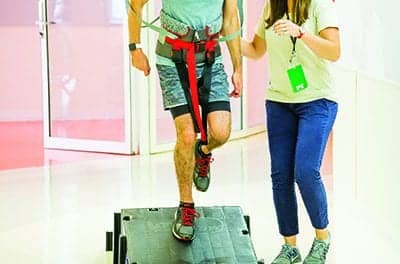
The results indicated “a significant up-regulation of activated microgila cells, not only in the area of direct trauma, but also in adjacent as well as distant areas,” researchers say. A recent news release also notes that long-term neurological deficits from TBI linked to inflammation may cause more severe secondary injuries and predispose long-term survivors to age-related neurodegenerative diseases.
Cesar V. Borlongan, PhD, professor, vice chair of the department of neurosurgery and brain repair, USF, rearticulates the study’s findings, noting that, “We found that a massive neuroinflammation after TBI causes a second wave of cell death that impacts cell proliferation and impedes the brain’s regenerative capabilities.”
While the results suggest that progressive deterioration of the brain following TBI negatively impacts efforts to repair damage caused over time, since TBI involves both acute and chronic stages, researchers hypothesize that animal model research on the chronic stages of TBI may assist in pinpointing therapeutic targets for treatment in the post-acute stage.
“Progressive injury to the hippocampal, cortical and thalamic regions contribute to long-term cognitive damage post-TBI. Both military and civilian patients have shown functional and cognitive deficits,” adds Paul R. Sandberg, PhD, USF senior vice president for research and innovation.
The study appears in PLOS ONE.
Source: University of South Florida





